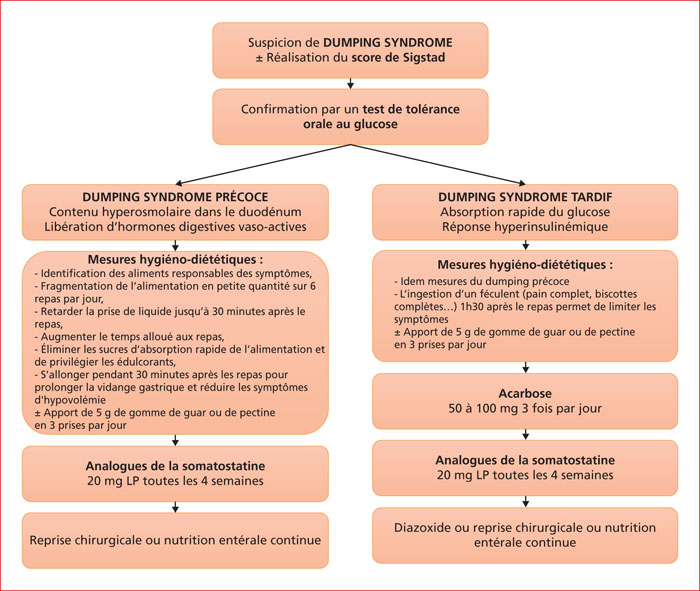Hépato-Gastro & Oncologie Digestive
MENUNutritional management after cancer related gastrectomy Volume 27, issue 5, Mai 2020
- Key words: gastrectomy, gastric cancer, malnutrition, vitamin B12, dumping syndrome
- DOI : 10.1684/hpg.2020.1951
- Page(s) : 438-45
- Published in: 2020
Surgery is the only treatment with curative intent for gastric cancer. Resection of the stomach leads to a profound alteration in physiology and digestive metabolism, which can lead to protein-energy undernutrition. As the long-term survival of patients depends on the nutritional state before and after surgery conditions, it is essential to detect any protein-energy malnutrition as soon as possible and correct it using the most suitable nutritional support. In addition, gastrectomy can cause malabsorption, resulting in numerous deficiencies (vitamins B12 and B9, iron), and these must be detected, monitored and supplemented throughout life. Finally, as the stomach is a central element in the digestion process, its resection can cause dumping syndrome, which leads to decreased ingesta and to a worsening of the patient's nutritional state, already weakened by the disease then surgery. The purpose of this work is to review therapies to diminish the side effects of gastric surgery, which are still too often ignored.


